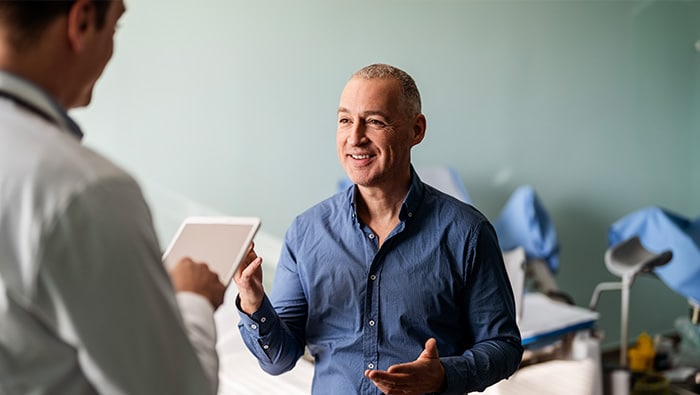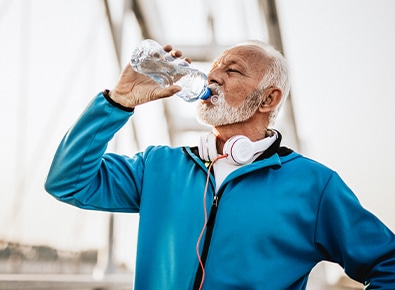What to Do If You Think You Have Kidney Stones: 4 Tips
You’ve probably heard about the nasty pain that comes with kidney stones, but did you know some of the people who develop stones are blissfully unaware they even have them?
That’s right. Nearly one in every 10 people in the U.S. develops kidney stones, but in some cases, the stone remains in the kidney for years without symptoms. Eventually, however, the stone will move out of the kidney, and most – nearly 80% – will be carried out in urine.
Will that hurt? It depends on the stone size, so it makes sense to be prepared. If a stone is small enough, you can take steps to make that passing easier.
Why Would I Have Kidney Stones?
The main cause of kidney stones is dehydration, which leads to a high concentration of chemicals and minerals in the urine. If these compounds remain undiluted, they can bind while in the kidneys and harden into crystals.
It can take months, even years, for a stone to form. But at some point it will move from the kidney to the ureter, the tube urine travels through to reach the bladder. This is when you might feel pain, depending on the stone’s size. The ureter is narrow, about the width of a grain of rice at some points, so even a little stone can hurt.
Symptoms of a passing stone include:
- Acute pain that may occur in waves from the back, sides, abdomen, and groin
- Blood in the urine (hematuria)
- Nausea and vomiting
- A frequent need to urinate, but making only a small amount
4 Tips for Passing Stones
If you experience even mild symptoms of a kidney stone, see your doctor so you can be evaluated for blockages or infection. If the stone is an eighth of an inch or less in diameter, it should be able to pass in your urine without too much discomfort. This can take about 31 days, on average. During that time, you can take the following steps to ease the process.
- Give your stones lots of water. A steady stream of liquid – eight to 12 cups a day – will help flush out the stone, but limit coffee and soft drinks to two cups. Instead, try lemon or orange juice, which contain citric acids that can bind with calcium (a common stone component) and prevent stones from enlarging.
- Keep pain relievers in reach. Have a fresh bottle of Advil, Tylenol, or Aleve in the medicine cabinet beforehand and take as directed to alleviate discomfort. If these medications aren’t enough to manage pain, ask your doctor about prescriptions that can relax the ureter muscle, such as alpha blockers.
- Stay active, but don’t push it. Gentle exercises such as walking, stretching, and slow biking might quicken a stone’s passage through your urinary system. Don’t overdo it: over-exertion can cause more pain.
- Watch your salts, fats, and calcium. If you have calcium kidney stones, avoid salty processed foods and canned items, choose lean meats, and eat no more than two or three daily servings of high-calcium foods such as milk, cheese, and tofu.
What to Expect If Your Stone Is Stuck
If your stone is too big to pass on its own, it can be removed through a number of minimally invasive procedures. Among them:
Shock wave lithotripsy (SWL) – One of the most common approaches to stone removal, SWL directs shock waves from outside the body to the stone, fragmenting it enough to pass in your urine. Our equipment can closely pinpoint the location and types of stones using ultrasound.
Ureteroscopy – This is an outpatient treatment in which the stone is located using a flexible, camera-equipped scope and then removed in a tiny wire basket fed through the tube. If necessary, the doctor will first break the stone apart with a laser.
Percutaneous nephrolithotomy – If you have a large or irregularly shaped stone, it may have to be removed surgically. The surgeon threads a thin, camera-equipped tube to the kidney through a small incision in the back, then removes the stone using instruments fed through the tube.
Like many people, you too might have a kidney stone and not know it. But even if you don’t, you can prevent one from forming by drinking plenty of water, keeping a healthy body weight, and sticking to a balanced, low-salt diet. Ask your doctor for guidelines.
To learn more, read our Q&A about kidney stones on our website. If you would like to see a physician at one of our two locations, you can review all of our providers here, or call Spokane Urology at 509-747-3147.



